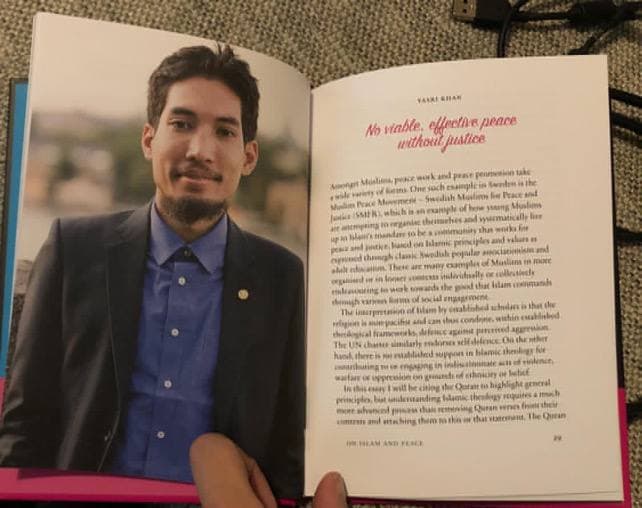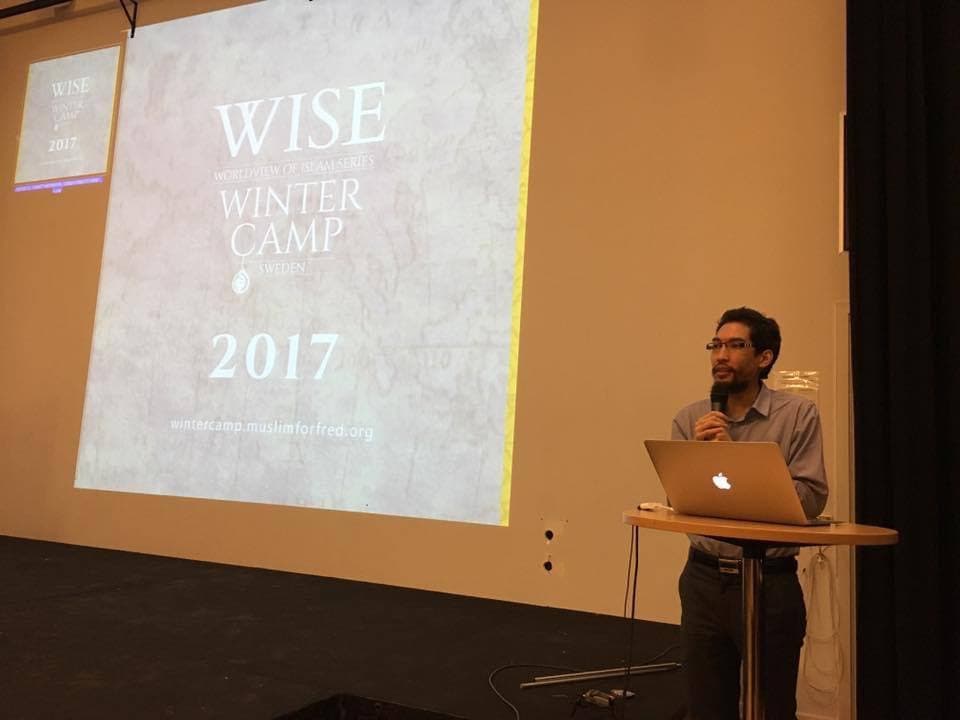by Yasri Shamsuddin Khan
General Secretary
Swedish Muslims for Peace and Justice (SMFR)
In the name of Allah, the Beneficent, the Merciful.
I wish to thank and express my love to our prophet Muhammad – may peace and blessings be upon him – for leaving behind him a legacy of spiritual knowledge, skills and values to mankind and for all the scholars that has preserved that knowledge – structured and contextualized it and passed it from generation to generation in a chain of transmission and left this treasure of knowledge for our generation by the mercy and guidance of Allah.
For a long time while growing up, Islam had unwittingly in my mind been reduced to a set of practices and rules that should be abided by. It was mostly about complying and performing certain actions. Growing up in the west, the awareness of different sociological practices from the majority population became very apparent by personal experience.
As a Muslim – brought up in the Shafii madhab in the small Swedish Malay Muslim community that I was part of – we would not eat food that was not halal, get girlfriends/boyfriends or have dogs while others in our surrounding would. We would pray five times a day, fast during Ramadan, pay zakat in accordance with our belief while others wouldn’t. These and other differences of physical practices in everyday life are apparent not just to Muslims as myself but also non-Muslims. Even though these Muslim practices sometimes could lead to social conflicts with the surrounding – the existence of differences of practice was justified in our belief in the one true God as explained through the prism of Islam. And that was it.
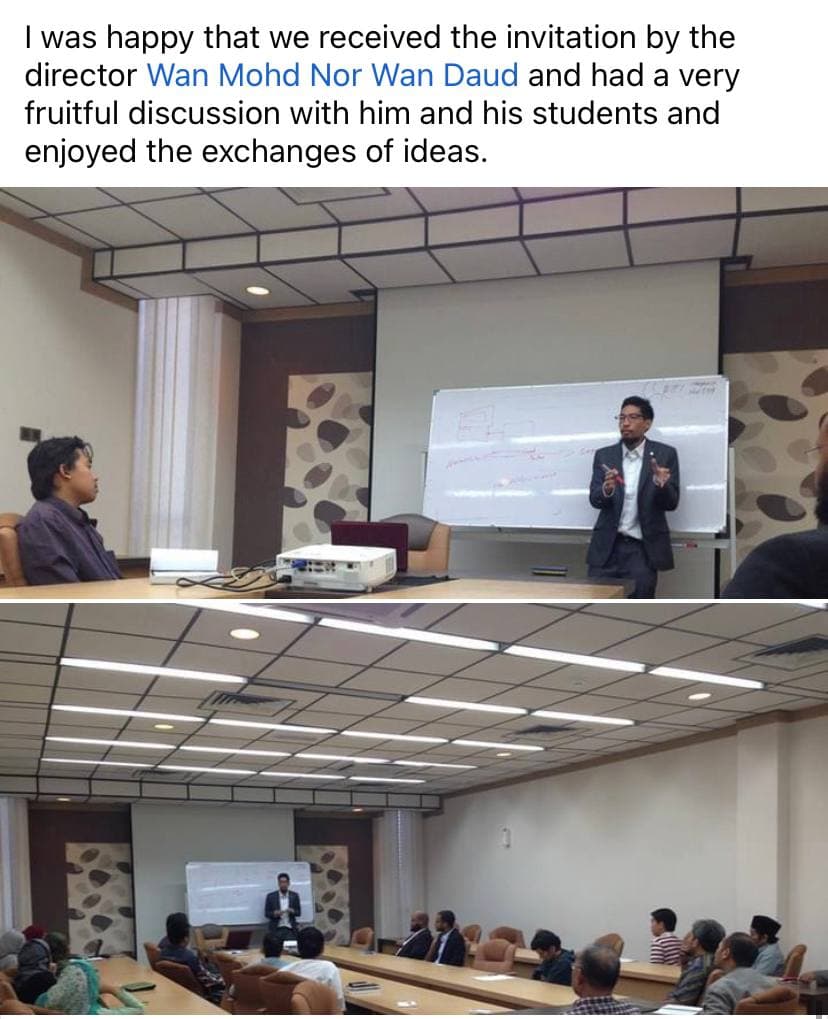
First Visit to RZS-CASIS in 2014 
First Visit to RZS-CASIS in 2014
Deeper studies in Islam were usually confined to the judicial branch of Islam (fiqh) with focus on understanding the details of Islamic rulings (furu‘) and the methodology to arrive at them (usul al-fiqh) on different subjects as well as awareness of the different practices and opinions of different schools of law and within the schools of law itself. The focus was on getting knowledge of what action to do in different circumstances from a legalistic point of view.
Sure, there were also normative practices stemming from my upbringing such as dhikr and constant reminders of remembering God, fearing hell and hoping to attain the mercy of God and be granted paradise – but in most cases they are presented as arguments to strengthen the judicial view of Islam of halal and haram – whilst deeper understanding and meaningful intellectual introspections were constantly hampered and the result is only confusion.
In my work in the civil service and politics in Sweden and abroad I saw trends that bothered me. Being able to travel around the world I interpreted the things I observed through a prism of injustice, tragedy and inequality utterly unaware that I was very much shaped by a Scandinavian upbringing in a broader context of a western secular worldview. This prompted me to seek political solutions based on my limited understanding of the underlying problems at hand which mostly left me internally dissatisfied.
Coming from a political science and sociology background – I often wondered if Islam had a unified theory of knowledge that could provide a deeper meaning and guidance to handle our emotional and intellectual struggles of life – or if it was just about having sufficient willpower to try to live a ”halal life” whilst ignoring all the white noise around us and just bear with the compounded confusion gathered in life as a test to our resolve as a Muslim.
This changed however when I first read Sheikh Syed Naquib al-Attas’s work and receiving explanations from his students about the topics mentioned in his books. From that a greater awareness of the imposed normative assumptions in my mind formed by western philosophy through westernized culture and education and its impact on my own language and thought – blocking me from a deeper understanding and connection with Islam’s intellectual heritage – had been painfully exposed to me through his great work.
All these while I had been chained by a type of western-secular colonization of my mind even though I was a practicing Muslim with a lot of religiously motivated daily practices in my life.
A lot of internal struggles between my secularized intellect through a western influenced upbringing and the Islamic fiqh practices I practiced through my Islamic heritage became more apparent as to its cause.
But finding Sheikh Syed Naquib al-Attas was not an easy task. He was practically unheard of for us in Sweden or at least to me. So, when I set out to find something deeper, to find intellectually satisfying answers, to handle the psychological stress of living in a postmodern world order. I went to many universities and institutions in Egypt, Malaysia, Saudi Arabia and talked to scholars with background from places of learning in the middle east, Europe and the U.S. etc. to find deep answers from Islamic thought that could deal with contemporary problems. In Malaysia we went to the top universities, well-known NGOs, and various Islamic institutions, all carefully planned with booked meetings in advance. It was only by happenstance (guided by Allah of course) that we would go to CASIS. This was originated by an invitation of Dr. Wan Suhaimi who used to teach at the University of Malaya where we had organized a Summer Camp previously. Going to CASIS was more out of politeness to a teacher then any deeper motive.
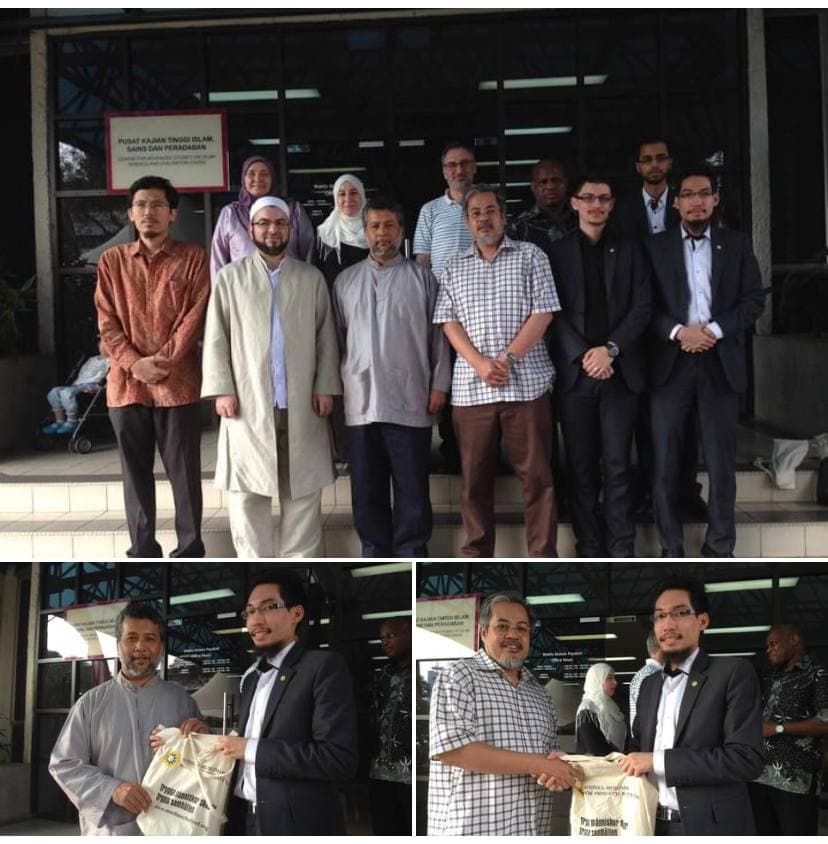
Second SMFR vist to RZS-CASIS in 2015 with Shaykh Salahuddin Al-Barakat 
Visiting Dr Wan Suhaimi’s house with the SMRF board members in 2015
While at CASIS we got a lot of references to Sheikh Naquib al-Attas who we had no prior knowledge of. I received books that was placed on my desk in Sweden for several months before I one day decided to read them. The first book was Islam and Secularism.
Coming into contact to Sheikh Syed Naquib al-Attas work became an intellectual and spiritual game-changer for me.
Reading Islam and Secularism, there were things I must admit that I couldn’t understand at all. But there are other parts that really gave answers to deep questions that had been buried in the back of my mind. What first caught my attention was that I recognized some parts that had some resemblance to Edward Saids Orientalism but was argued from a totally different perspective. It was argued through theology and not sociology. It also made me aware of and provided me with another system of epistemology than what I was used to. It gave me the concept of Islamic worldview that became reinforced through the reading of Prolegomena to the Metaphysics of Islam. Becoming aware of this concept and delving deeper into it opened the door to Islamic knowledge on a different level.
It was as if I had realized that my cup was filled with oil and that I had tried to fill it with pure water that would constantly become contaminated. Through Sheikh Naquib al-Attas and the teachings of his students I didn’t just become aware of the dirty oil in my glass but learned that I could clean it and allow for the first time pure water to fill my glass without the same amount of contamination.
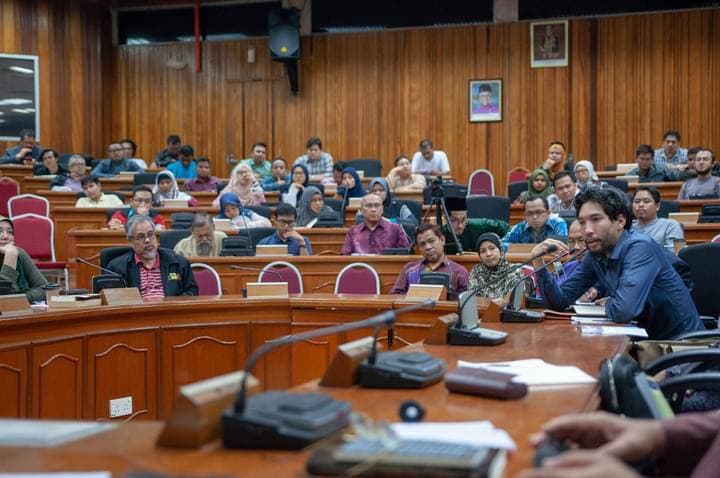
It was through this guidance that I could re-read the Ihya and Tahafut of Imam al-Ghazali but with a totally different lens that gave me a deeper connection to it and suddenly becoming interested in reading about Fakhrudin Razi, for example, in order to get acquainted with how a worldview changes the outlook of scientific assumptions itself, for example, in the subject of physics.
It spurred my curiosity and gave me tools to reconstruct and become more aware of my worldview and how important it has been in forming an epistemology but also realizing the opposition and dangers of dualism to a worldview based on Tawhid.
Discovering and putting a name on the difference of a ”man-centered worldview” and a ”God-centered worldview” became an eye-opener in trying to look at different subjects from those perspectives with a deeper understanding. Stemming from a comparison of the importance of grasping the correct concept of God through Sifat of Allah and the Aqidah works of the traditional Islamic scholars – for example Imam Tahawi and Nasafi – as well as understanding the importance of Imam Ash’ari and Imam al-Ghazali in guarding the Islamic concept of God from corruption as that is the same as protecting the Islamic perspective of reality and knowledge.
The work of al-Attas also introduced me to the understanding of how language reflect our ontology. Through the realization of how language is a practical extension of a worldview by how it is used to explain, describe and articulate things and how that in turn forms our intellectual and mental reality.
More than this, I gained a deeper understanding of adab, the soul, virtues, justice etc. All these has provided me with tools to help young Muslims in Sweden to navigate their life and to handle the growing problem of internal stress and psychological illnesses stemming from confusion of knowledge in this age of fast paced digital information – leading to uncertainty (shakk) and suffering of the soul especially for those who are unaware and whose minds are untrained. With the explanation as to what the worldview of Islam is it has brought us tools to foster intellectually and spiritually aware Muslims as opposed to mere legalistic ones even though the legal aspects still are important.
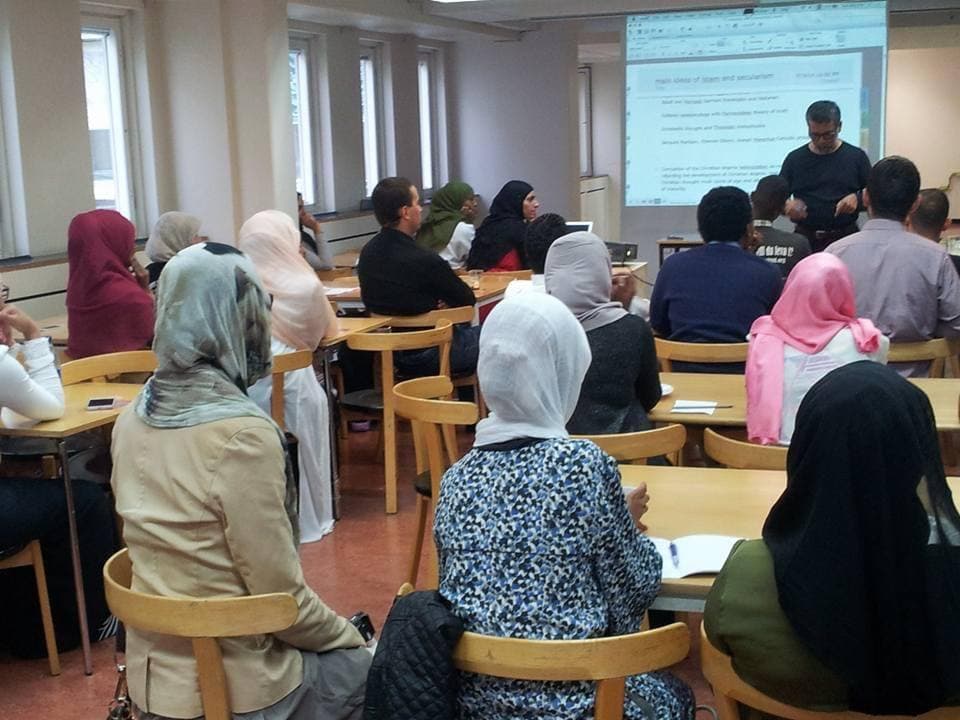
Worldview Training of Tutors with Prof Dr Muhammad Zainiy Uthman, 2015 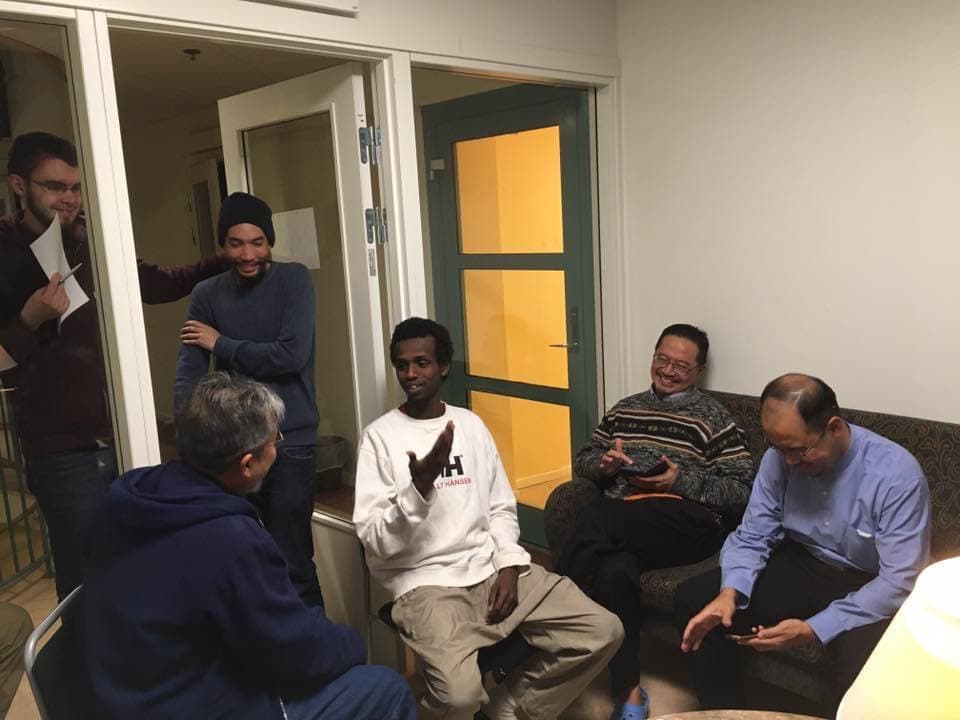
WISE WinterCamp @sweden 2017 
WISE WinterCamp @sweden 2017 
with WISE tutors 2017 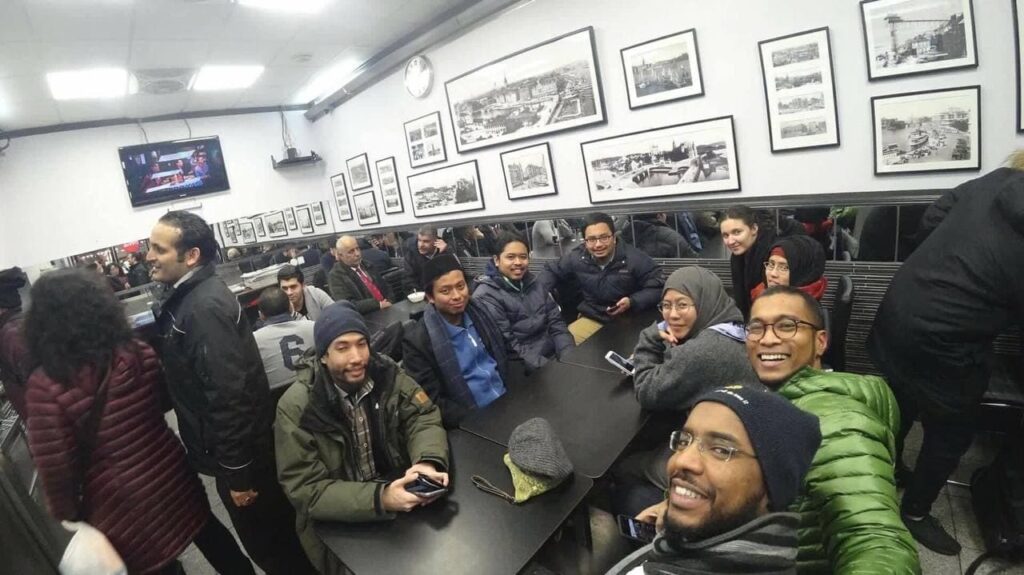
with WISE tutors 2017 
WISE Summer School 2019 
WISE Summer School 2019
For this we are truly indebted to the Sheikh Syed Naquib al-Attas and his students Prof. Wan Mohd Nor, Prof. Zainiy Uthman, Assoc. Prof. Dr. Wan Suhaimi, Dr.Mohd Zaidi Ismail, Dr. Mohd Sani Badron and Dr. Mohd Farid Shahran as well as their students Dr. Ikhwan, Dr. Hilmi, Hajar, Syafiq and Syed Muhiyuddin who have interacted with us and provided us with their wisdom and knowledge.
They have provided us with a door to free our western colonized Muslim minds and to regain access to and understanding of the rich Islamic knowledge and intellectual tradition.
May Allah reward them abundantly.
Yasri Shamsudin Khan reads Political Science for his degree at Linköpings University, Sweden and was a former politician of the Green Part in Sweden of Malay descent, and recipient of the leadership award from His Majesty the King of Sweden. He founded the NGO Swedish Muslims for Peace and Justice in his early twenties and is currently active as the General secretary.



